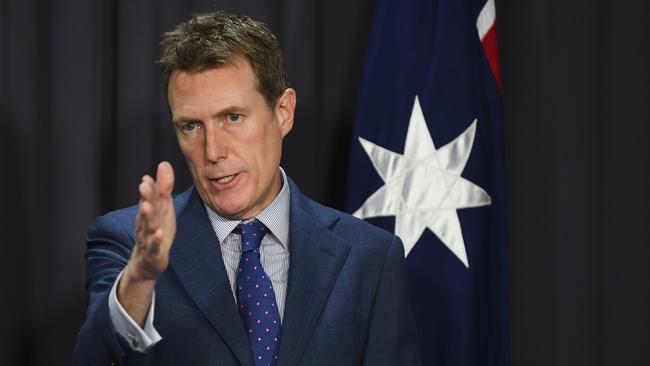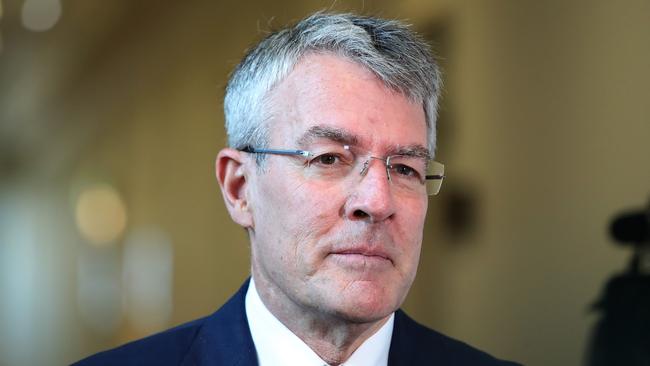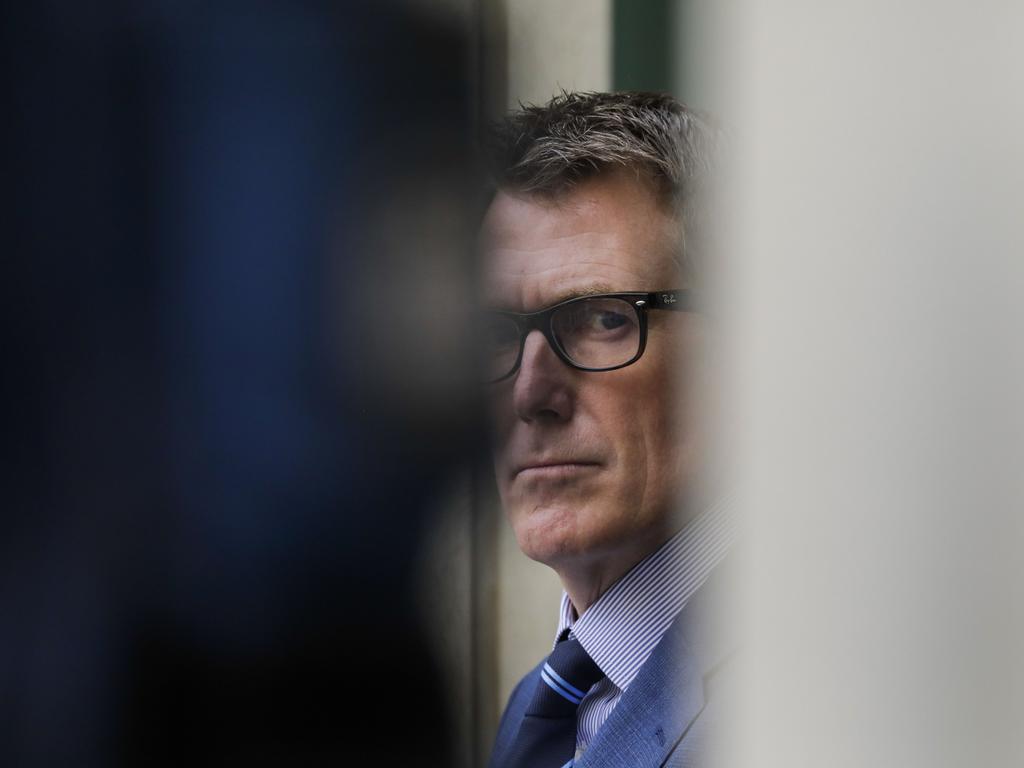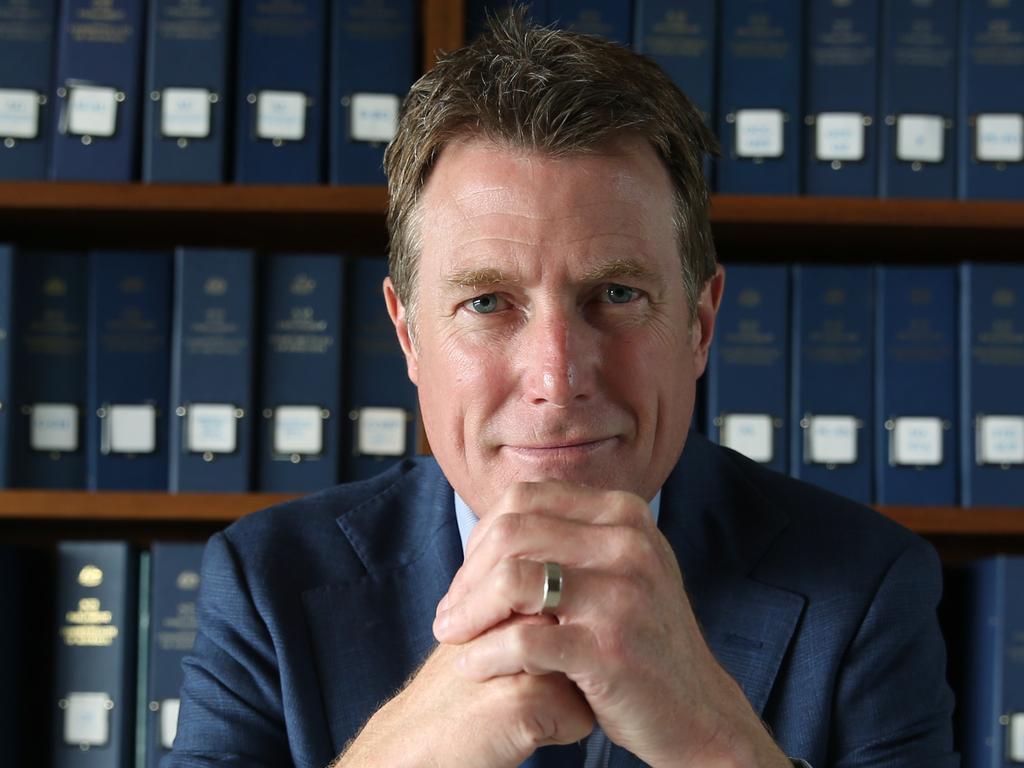Federal MPs to face corruption scrutiny
The wheels are in motion to establish a Commonwealth Integrity Commission.

A new commonwealth anti-corruption body proposed by the Morrison government would conduct secret hearings and investigations of criminal offending by MPs and public servants before findings were passed to prosecutors, opening up a major political battle with Labor, which wants proceedings to be public.
Attorney-General Christian Porter said a Commonwealth Integrity Commission could be set up by early next year as he released draft legislation for a two-tier body that would subject law enforcement officials to greater public scrutiny than politicians, triggering an immediate backlash from Labor.
The proposal was also criticised by the Greens and key Senate crossbenchers within hours of its release, cruelling hopes of the proposal passing parliament in its current form, with the design of the new watchdog to be put to a five-month consultation period.
Claiming the body would have stronger investigatory powers than a royal commission, Mr Porter said he did not think politicians and senior public servants accused of corruption should be subjected to public hearings.
Under the draft legislation unveiled on Monday, the CIC would investigate referrals of corruption, conduct private hearings and submit its findings to the Director of Public Prosecutions.
The DPP would then recommend whether police should lay criminal charges against an alleged corrupt official.
Mr Porter said it would be up to the CIC — a proposed statutory agency that would subsume the Australian Commission for Law Enforcement Integrity — to determine with “great care” whether to publicly reveal the investigation of federal MPs.
The body would have powers to compel people to give sworn evidence at hearings and provide information including documents, with potential prison terms of up to two years for non-compliance.
It would also have powers to search people, arrest people, seize property, tap phones and use other surveillance devices.
Investigators would be able to assume false identities and confiscate passports.
The CIC would not initiate investigations and could only respond to referrals, although there would be mandatory reporting of suspected corrupt behaviour by heads of government departments and agencies.
Mr Porter said that the government did not want to make the same mistake as state corruption bodies in NSW and Western Australia where careers had been “absolutely destroyed” by public hearings. “We do not consider that a body with this type of power should be having at its discretion the ability to hold public hearings,” Mr Porter said.
“It is a fair and reasonable thing to note that the public part of the process will be in a court once the public sector division has used the powers greater than a royal commission to investigate anything that it considers evidence as a reasonable suspicion of corruption. The government takes the view that ultimately a court should be making a public determination of guilt or innocence, not a report.”

Labor, the Greens and key crossbenchers — including Rex Patrick, Jacqui Lambie and Stirling Griff — savaged the draft laws for not including public hearings, while One Nation’s two senators reserved judgment.
The government needs the support of three out of five crossbenchers to pass legislation that is opposed by Labor and the Greens, with opposition legal affairs spokesman Mark Dreyfus warning on Monday that the proposed body was the “sort of integrity commission that you have when you don’t want to establish an integrity commission”.
“They have not listened to the criticisms that said that you need to have public hearings,” Mr Dreyfus said. “They have not listened to the criticisms that said that you cannot just investigate criminal offences. They have not listened to the criticisms that said that an integrity commission that is worth its name must be able to start its own investigations.”
The government has brought forward the draft legislation just weeks after Mr Porter said he was delaying its release because there were “more immediate priorities” during the COVID-19 pandemic.
Scott Morrison also came under attack from Labor during the last parliamentary fortnight for holding off on establishing a new corruption watchdog, a Coalition election commitment, with the opposition linking the delay to allegations of inappropriate spending by senior executives at the corporate regulator and Australia Post.
Australia Post chief executive Christine Holgate resigned on Monday over Cartier watch bonuses while the former deputy chairman of the Australian Securities and Investment Commission, Daniel Crennan, resigned over $70,000 in relocation costs.
Law Council of Australia president Pauline Wright criticised the bill for imposing different trigger points for the commencement of corruption investigations for politicians and law enforcement officials.
“There should be an alignment of powers between the divisions and the same broad definition of ‘corrupt conduct’ should apply,” Ms Wright said.
She said there should be discretion to hold hearings in public “if in the public interest to do so”.
Under Mr Porter’s proposed body, politicians and most senior public servants would come under the Public Sector Integrity Division, which could only pursue potentially criminal conduct.
Officials in law enforcement agencies would come under the purview of a separate division subject to public hearings at the discretion of investigators.
Mr Porter said he would consider how members of the federal judiciary could be subject to “an enhanced system of integrity” after they were excluded from the remit of the CIC. The commission will have a $147m budget over the forward estimates and 172 staff.








To join the conversation, please log in. Don't have an account? Register
Join the conversation, you are commenting as Logout